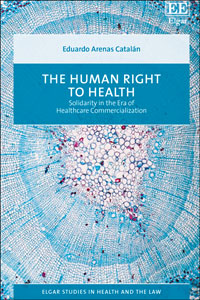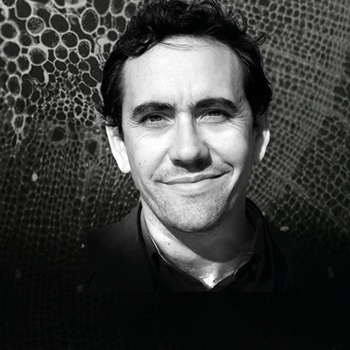Is healthcare also a human right?
'Out of all disparities, health inequities are the most shocking and inhumane', dr. Martin Luther King Jr. stated in 1966. That is my starting point. I diagnose that commercialization has penetrated human rights law interpretations. The consequences are social inequities and de-legitimization of human rights law. In many low and middle income countries - and even in high income countries - people have no or limited access to the healthcare they need. They are increasingly getting only the healthcare they can pay for.'
Legal shortcomings
'The gap between necessary and available healthcare widens when commercialization is allowed to define healthcare distribution. People have different incomes. Once a commercial scheme is introduced, relevant access problems are generated for a lot of people. The mainstream solution in liberal democracies - with the blessing of official human rights law interpretations - consists in guaranteeing a minimum state paid healthcare service. Beyond that, everyone is expected to arrange the problem with his own resources. I would like to underline the legal shortcomings of that policy from a human rights law point of view.
Misconceptions
These shortcomings might, according to Arenas Catalàn, originate from some commonly accepted misconceptions. 'The first one is that solidarity equals charity. From a legal philosophy perspective, charity is an 'imperfect obligation', as it cannot be claimed as a matter of right. But the whole reason solidarity is useful is that it helps shedding light on legal obligations. The second misconception emerges from the widespread acceptation of market dogma. In this context, anything limiting or blocking buying the way into healthcare of the wealthier individual is considered totalitarian, and solidarity is not the exception.'
A powerful freedom and justice narrative
'Some people love to process these misconceptions further into a caricature of solidarity. For them, it equals Soviet politics. Fear is deeply rooted in this thought, which prevents discussing the merits of socializing healthcare. It is vital to counter that caricature. I think of universal equal healthcare as a fundamental pillar of freedom. Without the time to do the things that give meaning in one’s life, it is difficult to speak of freedom. In the neoliberal society more and more people cannot stop working. Making ends meet consumes most of their time and the energy. No one escapes here: the poor are threatened with further social exclusion, but ordinary people cannot escape from the pervasive burn-out society, as philosopher Byung-Chul Han has pointed out. Understanding institutions in this fashion makes the human rights topic relevant in the Global North as well as in poor southern countries. A right to equal healthcare would provide our democracies with a very powerful freedom and justice narrative.'
Free and universal
Arenas Catalàn elaborates what he thinks is a better interpretation of the human right to healthcare. 'A free and universal public healthcare system is a better interpretation of that right, if you ask me. It is the most humane, fairest, most equitable and even cheapest system. Those most in need receive proportionally more care. You also cannot buy your way into a preferential treatment. This system is also the cheapest, because administrative costs remain low and profits are ruled out. Governments are therefore advised to interpret international human rights law in this light.'
Life, death and social cohesion
'Equal healthcare for all is vital in two senses. Healthcare can literally stand between life and death. If what one gets is conditional to what one pays, this represents a fundamental justice problem. But there is also a more social angle, as equal healthcare access also stands for security and social cohesion. People from different avenues of life hardly meet each other. Universal equal healthcare institutions can help to mend that lack of cohesion.'
Book The Human Right to Health
Eduardo Arenas Catalán has a lot more to say on this subject. He does this in his new book 'The Human Right to Health: Solidarity in the Era of Healthcare Commercialization'. This fascinating global theme will be discussed during the book presentation and the webinar with various speakers.






